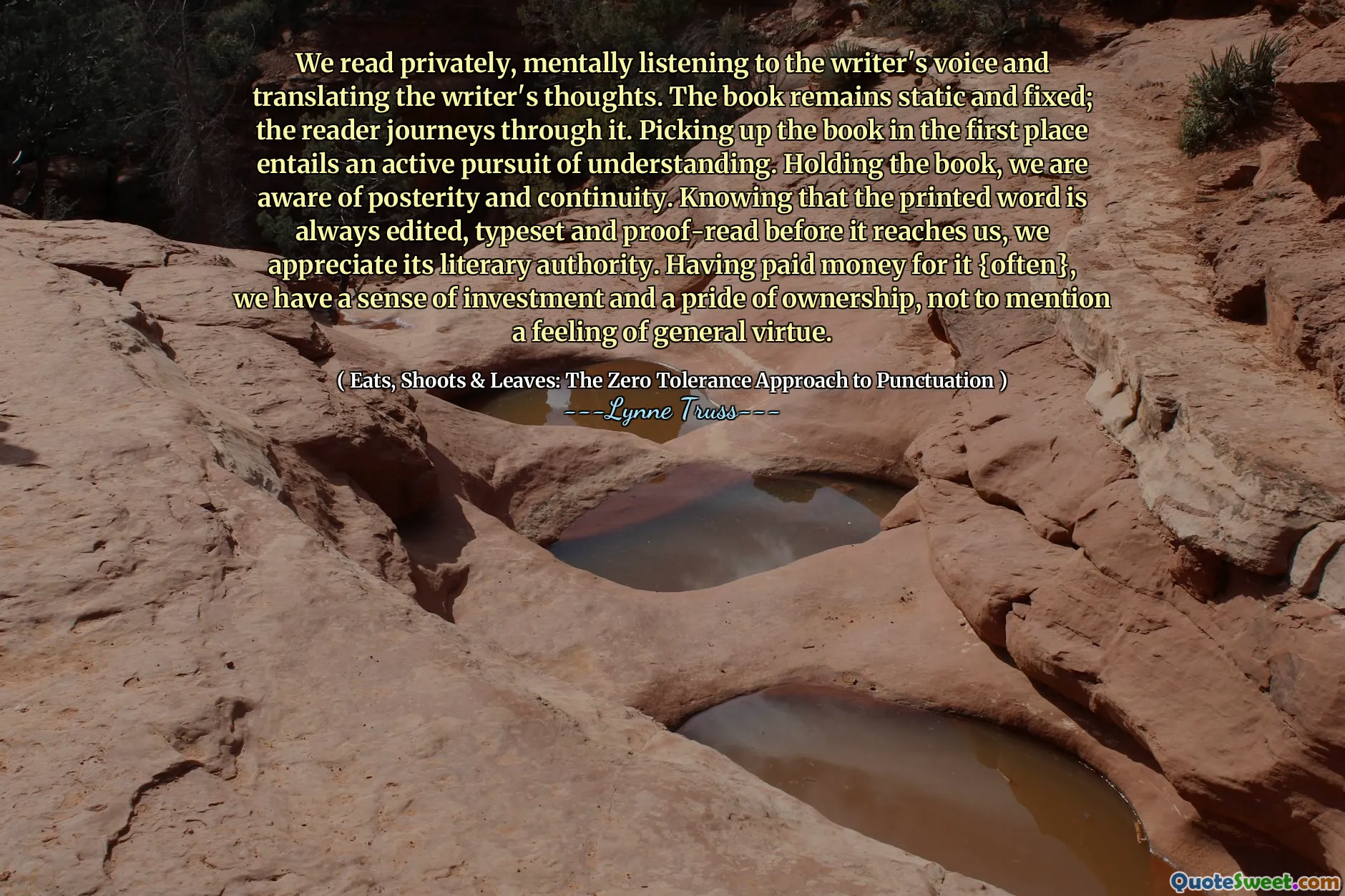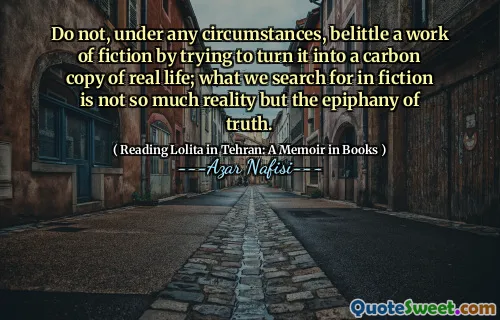
We read privately, mentally listening to the writer's voice and translating the writer's thoughts. The book remains static and fixed; the reader journeys through it. Picking up the book in the first place entails an active pursuit of understanding. Holding the book, we are aware of posterity and continuity. Knowing that the printed word is always edited, typeset and proof-read before it reaches us, we appreciate its literary authority. Having paid money for it {often}, we have a sense of investment and a pride of ownership, not to mention a feeling of general virtue.
Reading is an interactive and personal experience where the reader engages with the writer's thoughts, creating a private dialogue in their mind. While the book itself remains unchanging, the reader embarks on a unique journey through its content, driven by the desire to understand. The act of picking up a book represents a quest for knowledge and connection, and it invites the reader to consider the lasting impact of the printed word.
As we hold a book, we recognize the importance of its carefully crafted words, which have undergone extensive editing and preparation to achieve literary quality. This awareness enhances our appreciation for what we read, as well as our investment in it—both financially and intellectually. Owning a book comes with a sense of pride and virtue, as we acknowledge the effort that goes into producing each work. Thus, reading becomes not just a passive consumption of text, but an active engagement with the ideas and expressions contained within.











